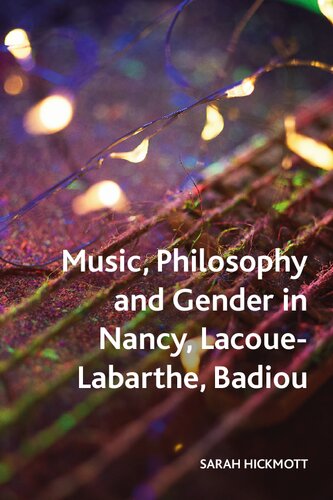

Most ebook files are in PDF format, so you can easily read them using various software such as Foxit Reader or directly on the Google Chrome browser.
Some ebook files are released by publishers in other formats such as .awz, .mobi, .epub, .fb2, etc. You may need to install specific software to read these formats on mobile/PC, such as Calibre.
Please read the tutorial at this link: https://ebookbell.com/faq
We offer FREE conversion to the popular formats you request; however, this may take some time. Therefore, right after payment, please email us, and we will try to provide the service as quickly as possible.
For some exceptional file formats or broken links (if any), please refrain from opening any disputes. Instead, email us first, and we will try to assist within a maximum of 6 hours.
EbookBell Team

4.0
46 reviewsWhat counts as music for contemporary thinkers? Why is music of use to philosophers and how do they use it in their work? How do philosophers decide what music is and what assumptions are uncritically inherited in this move? And what is the philosophical relationship between music and gender? To answer these questions, Sarah Hickmott looks at the way music is used, characterised and understood in the work of Jean-Luc Nancy, Philippe Lacoue-Labarthe and Alain Badiou. Despite the differences in their philosophical-theoretical positions, all of these writers invoke music – both directly and indirectly – to negotiate their relationship to ontology, politics, ethics and aesthetics. Given a longer philosophical history, dating back at least to Plato, of aligning music with the feminine, she also focuses on the way gender is deployed, understood and constructed within the philosophy of music.